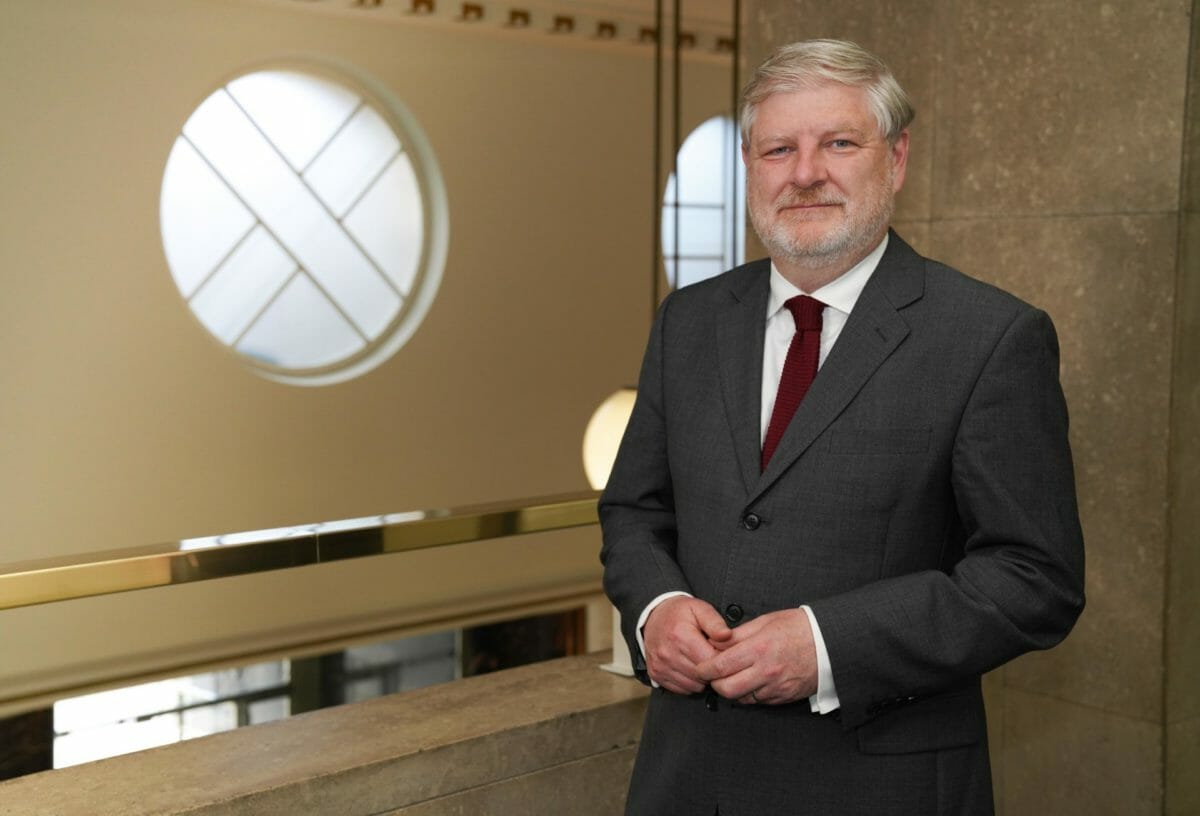The Scottish Government has backed a proposal to set up a new independent agency aimed at stemming the collapse of public interest journalism — but hasn’t committed to any funding.
The culture secretary, Angus Robertson, has given his “wholehearted support” to the establishment of a Scottish Public Interest Journalism Institute as recommended by a working group of journalists from across the industry.
The government has promised to use its “convening powers” to organise an industry roundtable in the autumn “to consider how best to deliver the institute”. But ministers have not agreed to the £9m that the working group said was needed over three years.
Robertson cautioned that direct funding of the institute could be criticised as a way of trying to influence journalists. “The separation between the news media and the state is fundamental to ensuring journalism can do its job and hold power, including the government, to account,” he said.
The minister also rejected recommended changes to charity law and advertising to help news providers. Giving local communities powers to take over ailing publishers needed “further investigation”, he said.
Journalists welcomed Robertson’s support for the new institute, saying that Scotland “desperately” needed a body to champion public interest news. But they urged the minister to look at ways of providing funding to help it set up.
Scottish newspaper companies said it was “remarkable” that the Scottish Government’s only firm commitment was to hold another meeting. They were “surprised” that ministers couldn’t find the “minimal resources” needed to set up the new body.
Robertson’s predecessor, Fiona Hyslop, set up an independent Scottish Public Interest Journalism Working Group in January 2021. It included representatives from traditional news publishers and small independent publishers, including The Ferret, as well as from the National Union of Journalists.
The group published a report in November 2021, calling for “urgent intervention” to prevent publishers going out of business, journalists losing their jobs and audiences being swamped by “fake news”. It made eight specific recommendations, headed by the creation of a Scottish Public Interest Journalism Institute.
Robertson has now published a 17-page statement responding to the working group’s report. “The Scottish Government wholeheartedly agrees that there is considerable merit in creating an infrastructure to sustain the sector in Scotland,” the statement said.
“It recognises the value a Scottish Public Interest Journalism Institute could have in supporting the resilience and sustainability of the sector through functions such as research, grant making, providing training and support, and promoting media literacy.”
The government stressed, though, that any such institute must be independent of government “to ensure the clear separation of press and state” and argued that its establishment should be led by industry experts.
“The Scottish Government proposes to use its convening powers to bring together institutions and stakeholders at a cross-industry roundtable in Autumn 2022, to consider the best model for an institute, and to transition the current working group into a new steering group with a remit to consider how best to deliver the institute,” the statement added.
“This remit would include exploring funding options and scoping appropriate leadership, outside of government, to establish and subsequently run the institute.”

No mention is made of government funding. But Robertson has indicated to the working group that ministers could consider remunerating members of the steering group and providing administrative support.
The government also suggested that it would help put pressure on the digital giants such as Google and Facebook to support the creation of a new institute. It will “facilitate engagement between industry and stakeholders with large digital companies to help them open a dialogue,” the statement said.
But the government rejected a recommendation from the working group to enable non-profit public interest news providers to register as charities. This was a matter for the independent Scottish Charity Regulator, it said.
The government didn’t comment on the suggestion of a voucher scheme for young people to access public interest journalism free of charge. It said “further investigation” was needed into a recommendation that community groups should be given powers to take over ailing local news publications.
Ministers have also rejected annual audits of public sector advertising, marketing and public notices, and a proposed minimum of 25 per cent of its advertising budget to be spent on public interest news providers. “The Scottish Government makes decisions on marketing based on the best return of investment for taxpayer funds,” the statement said.
Scotland desperately needs an organisation to champion public interest news.
John Toner, National Union of Journalists
The National Union of Journalists praised Robertson’s “enthusiasm” for a new institute. “Scotland desperately needs an organisation to champion public interest news following more than a decade of year-on-year cuts and the continued threats to titles,” said the union’s Scottish organiser, John Toner.
“In the long term the working group envisages the institute as self-financing, but the minister must show his commitment to this body, which would be totally independent from the government, by looking at ways to provide funding to get it set up.”
One of the catalysts for setting up the working group was the NUJ’s Edinburgh Freelance Branch. “It will be vital to have in place a cross-industry institution which can act as a focal point for discussion and action,” said the branch’s chair and working group member, Joyce McMillan.
The Scottish Newspaper Society (SNS), which represents major news publishers, also helped set up the working group. It welcomed the commitment to hold another meeting but thought it “remarkable” this this was the only firm official commitment.
“We are surprised the Scottish Government has been unable to find the minimal resources needed to get the ball rolling,” said SNS director, John McLellan.
“All the SNS sought was for the Scottish Government to invest public money fairly in a way which supported Scottish jobs and ensured the public continued to receive reliable information. But instead it seems content to channel valuable resources to foreign-owned tech giants which do nothing to support the Scottish economy.”
Rhiannon Davies, the editor of Greater Govanhill magazine in Glasgow and a member of the working group, highlighted the “enormous financial challenges” faced by local news outlets. “There is a gaping lack of funding available for the vital work of community-based local journalism,” she said.
“It’s fantastic that the Scottish Government has stated its support for an institute. But what would make an even bigger difference, would be to provide the funding needed to properly support independent journalism.”
Rachel Hamada, community organiser at the Bureau of Investigative Journalism and a journalist director of The Ferret, also stressed the need for funding. “The most fundamental plank of an institute would be targeted grant-making, focussed on ensuring a rich, diverse and pluralistic journalism sector in Scotland that serves the news needs of all areas and communities,” she said.
The culture secretary, Angus Robertson, emphasised the importance of a “free, independent and plural media” in a democracy. “We want to do all we can to support the sustainability and diversity of public interest journalism in Scotland and we will be working closely with industry stakeholders to see how an institute could help to ensure the sector remains resilient,” he said.
“I am confident that the working group’s report and our response will ignite a series of actions across industry to firmly secure a sustainable future for our public interest journalism sector.”
Cover image thanks to iStock/globalmoments. This story was updated at 07.45 and 11.00 on 24 June 2022 to include comments from the Scottish Newspaper Society and the culture secretary, Angus Robertson.















I’d like to see the breakdown of the £9,000,000 reportedly required to set up the agency